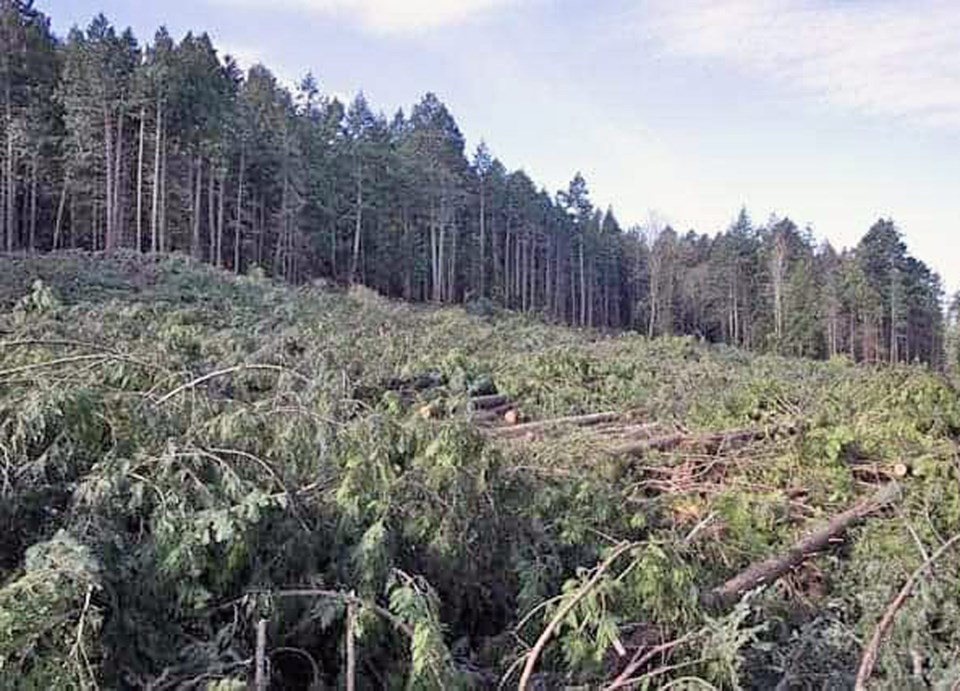Update: The Tsawout and Tseycum First Nations will be able to remove timber cut on reserve land on Saturna Island after a Friday court agreement.
About 80 per cent of the land has been logged under a timber permit but three Tsawout band members had been occupying the area in protest.
The presence of the protesters kept the logging company away because of safety issues.
The agreement between the Tsawout First Nation and the three members means no injunction will be sought, and operations on the remaining 20 per cent of the land will be suspended pending more discussion.
“We are pleased that we will be able to get our timber to market and limit our financial losses,” Tsawout Chief Harvey Underwood said.
Tsawout Coun. Mavis Underwood said taking band members to court was not done lightly. She said it was clear from discussions that everyone involved had the best interests of the Tsawout and Tseycum at heart.
“This agreement protects our interests while maximizing our economic returns, which ultimately benefit our communities and our members.”
- - -
Earlier story
Logging on Saturna Island by a contractor hired by the Tsawout and Tseycum First Nations is in a holding pattern, with 80 per cent of the job complete.
Tsawout Coun. Mavis Underwood said the remaining 20 per cent on reserve land the two bands share might or might not be cut.
People against the logging have been getting in the way of the work, making it difficult to move the wood and get it to market.
“What we were trying to do was actually negotiate with those who are opposed to the logging, to try to get us access to the property, remove the timber that has already been cut,” Underwood said.
She said the aim was to get some assurance of “non-interference.”
The felled timber is already stacked and sorted on the site, Underwood said.
“We just need to make sure that the opposition is removed from the site because the logging company won’t go ahead at all, because of safety issues, if there’s anybody on the property.”
It hasn’t been an easy situation for the Tsawout, Underwood said, but supporters of the logging project see it as “a means to an end” — with revenues going to the Tsawout’s construction of a new big house and the replacement of homes in deteriorating condition.
She called the big house the “cultural hub” of the community.
As well as revenue, the logging has allowed for the removal of accumulated ground cover, invasive species and debris that was a forest-fire hazard, Underwood said. “This was our opportunity to kind of do a clean-up and a replant, and to kind of reclaim that land.”



